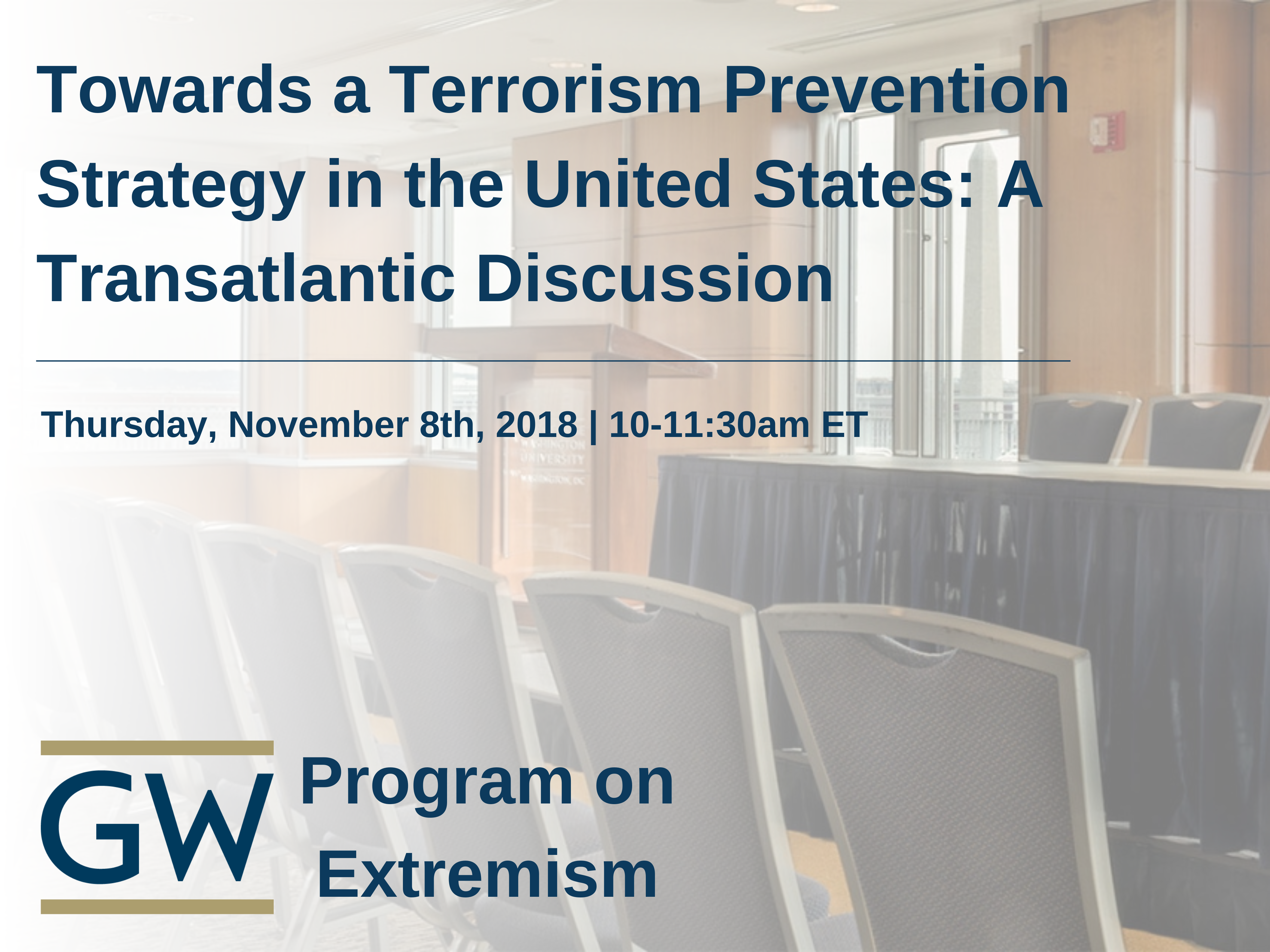Towards a Terrorism Prevention Strategy in the United States: A Transatlantic Discussion

Summary
On November 8, 2018, the Program on Extremism hosted a panel discussion to launch its policy paper series on developing terrorism prevention strategies in the United States. The Program on Extremism's Deputy Director Seamus Hughes chaired the panel, which featured three Program on Extremism research fellows - Bennett Clifford, Audrey Alexander, and Dr. Haroro J. Ingram - and guest panelist Dr. Alastair Reed from the International Centre for Counterterrorism in the Hague.
Perhaps the greatest vulnerability in efforts to counter terrorism in the United States is the absence of an overarching terrorism prevention strategy. As the White House National Strategy for Counterterrorism released last month acknowledges: "Over the past seventeen years, we have built a robust counterterrorism architecture to stop attacks and eliminate terrorists, but we have not developed a prevention architecture to thwart terrorist radicalization and recruitment." The panelists addressed different aspects of filling the terrorism prevention strategy void. Dr. Alastair Reed provided insights from the European experience that may be useful to informing American terrorism prevention strategies. Bennett Clifford reflected upon the challenges and opportunities of implementing interventions for extremists in the federal correctional system. Audrey Alexander outlined the importance of overarching policy principles for shaping strategies to confront terrorist use of the Internet. Dr. Haroro J. Ingram presented a broad institutional and policy architecture for a terrorism prevention strategy in the United States.

